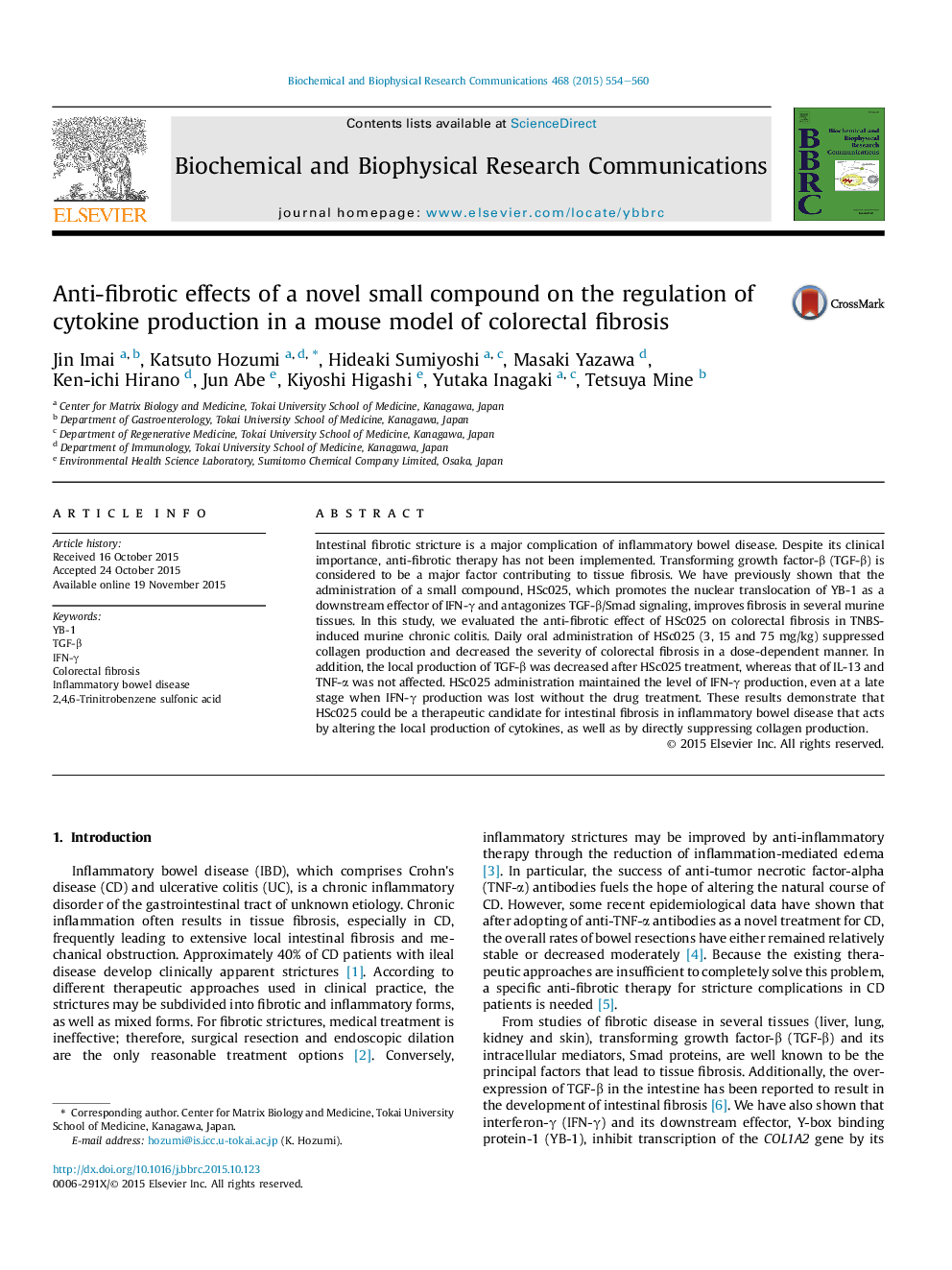| Article ID | Journal | Published Year | Pages | File Type |
|---|---|---|---|---|
| 10749090 | Biochemical and Biophysical Research Communications | 2015 | 7 Pages |
Abstract
Intestinal fibrotic stricture is a major complication of inflammatory bowel disease. Despite its clinical importance, anti-fibrotic therapy has not been implemented. Transforming growth factor-β (TGF-β) is considered to be a major factor contributing to tissue fibrosis. We have previously shown that the administration of a small compound, HSc025, which promotes the nuclear translocation of YB-1 as a downstream effector of IFN-γ and antagonizes TGF-β/Smad signaling, improves fibrosis in several murine tissues. In this study, we evaluated the anti-fibrotic effect of HSc025 on colorectal fibrosis in TNBS-induced murine chronic colitis. Daily oral administration of HSc025 (3, 15 and 75 mg/kg) suppressed collagen production and decreased the severity of colorectal fibrosis in a dose-dependent manner. In addition, the local production of TGF-β was decreased after HSc025 treatment, whereas that of IL-13 and TNF-α was not affected. HSc025 administration maintained the level of IFN-γ production, even at a late stage when IFN-γ production was lost without the drug treatment. These results demonstrate that HSc025 could be a therapeutic candidate for intestinal fibrosis in inflammatory bowel disease that acts by altering the local production of cytokines, as well as by directly suppressing collagen production.
Related Topics
Life Sciences
Biochemistry, Genetics and Molecular Biology
Biochemistry
Authors
Jin Imai, Katsuto Hozumi, Hideaki Sumiyoshi, Masaki Yazawa, Ken-ichi Hirano, Jun Abe, Kiyoshi Higashi, Yutaka Inagaki, Tetsuya Mine,
